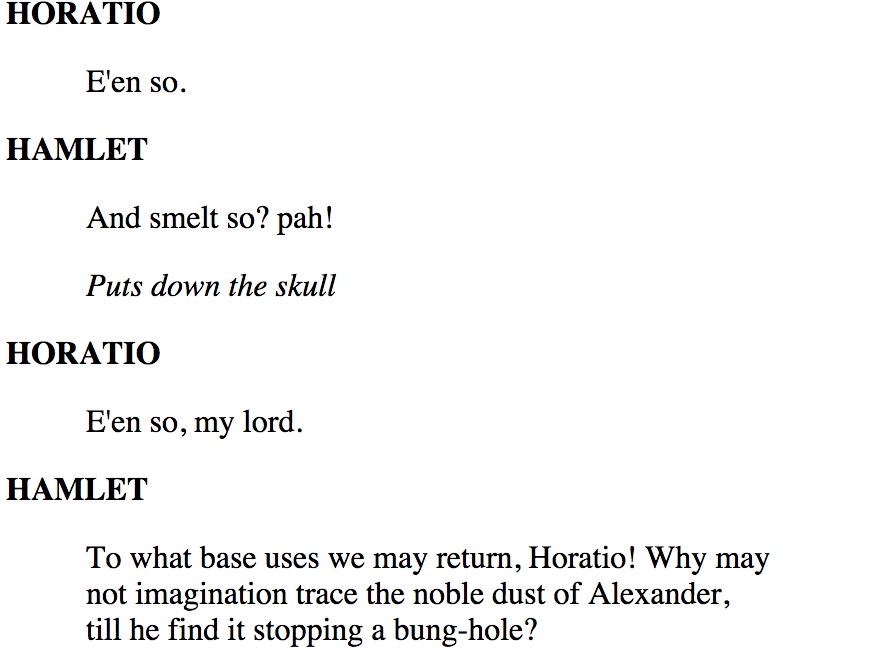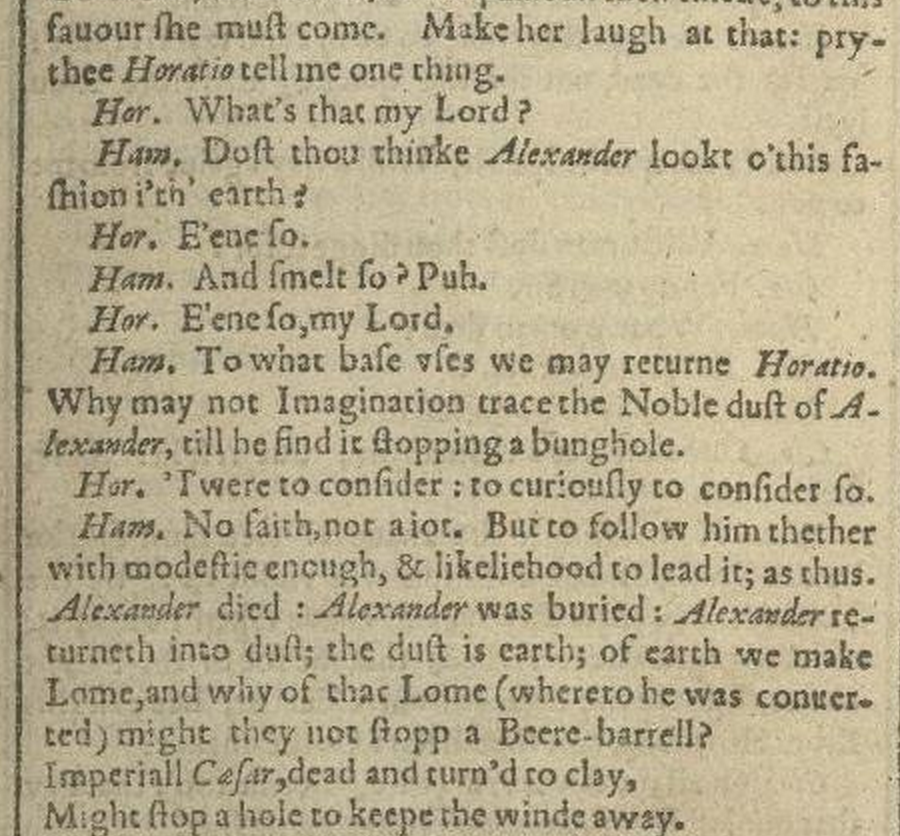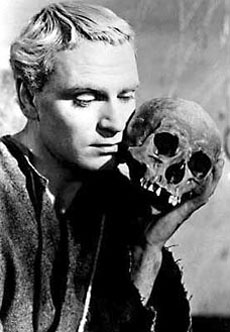Jephthah is not a word you hear every day. How often does phth show up in the middle of a word? Sounds onomatopoetic, like blowing someone a raspberry every time you say it. With words like that scattered around the play, of course it’s got a reputation for being difficult to read and understand.
Before we look at who Jephthah was, let’s first look at the scene where Hamlet uses the term (in Act 2 Scene 2). Hamlet has already visited with the ghost of his father, learned of his father’s murder, and has enacted his plan to “put an antic disposition on,” in the hopes of gathering evidence against his uncle Claudius. So basically he can say whatever he wants to whoever (whomever?) he wants. Part of the fun for Hamlet is in saying seemingly random things that actually have a deeper meaning.
Polonius, meanwhile, is convinced that Hamlet’s madness is love sickness, because he can no longer see Ophelia. Polonius even offers to prove his theory by putting out Ophelia as bait while they hide and watch how Hamlet reacts to seeing her, but Hamlet figures out their plan.
Hamlet. O Jephthah, judge of Israel, what a treasure hadst thou!
Polonius. What treasure had he, my lord?
Hamlet. Why,
‘One fair daughter, and no more,
The which he loved passing well.’Polonius. [aside] Still on my daughter.
The story of Jephthah is recounted in Judges 11:31, where Jepthah is about to go into battle with the Ammonites and makes a vow to God, offering as a sacrifice, “whatever comes out of the door of my house to meet me when I return in triumph from the Ammonites will be the LORD’s, and I will sacrifice it as a burnt offering.”
Well, his daughter is the first to come out and meet him. So he inadvertently sacrifices his own daughter.
Polonius is so caught up in his own “love sick” theory that as soon as he sees a daughter reference he sees it as proof of his own theory (“He’s still obsessed with my daughter!”) He doesn’t appear to get the “sacrificed his own daughter” connection.
Irony : The expression “There’s a method to his madness” comes earlier in this scene, spoken by Polonius. So he does recognize that there’s a deeper, relevant meaning in the seeming gibberish that Hamlet is spouting. He just doesn’t realize it’s anything more than coincidence.





